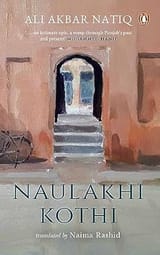Anonymous
7/3/2025, 10:44:49 PM No.24518324
>Staying within his familiar eastern/central Punjab’s rural locale, where most of his earlier short stories reside, Ali Akbar Natiq’s debut novel Naulakhi Kothi is like a broad sweeping statement on the working of the Raj, the rise of identity politics in united India, partition and its aftermath. It covers a period starting from 1920s up to 1990s including a good part of contemporary Pakistan.
>Natiq also provides a fresh insight into the way a society operates and entertains itself in rural life. His political choices are new and less politically correct and therefore daring; his take on the Raj to present it humanely will resonate with many. There is no doubt that people in villages still remember Raj’s justice system. Somebody had to reflect it and Natiq is courageous enough to do that.
This isn't contemporary sloppa. This is good shit if you want to read alternative perspective to colonialism and British Raj that isn't resentful whining and denial of agency with kino artistry. This author Ali Akbar Natiq has an extremely interesting life story. He was a mason but he told in an interview that since his childhood he never slept without reading.
>Natiq also provides a fresh insight into the way a society operates and entertains itself in rural life. His political choices are new and less politically correct and therefore daring; his take on the Raj to present it humanely will resonate with many. There is no doubt that people in villages still remember Raj’s justice system. Somebody had to reflect it and Natiq is courageous enough to do that.
This isn't contemporary sloppa. This is good shit if you want to read alternative perspective to colonialism and British Raj that isn't resentful whining and denial of agency with kino artistry. This author Ali Akbar Natiq has an extremely interesting life story. He was a mason but he told in an interview that since his childhood he never slept without reading.
